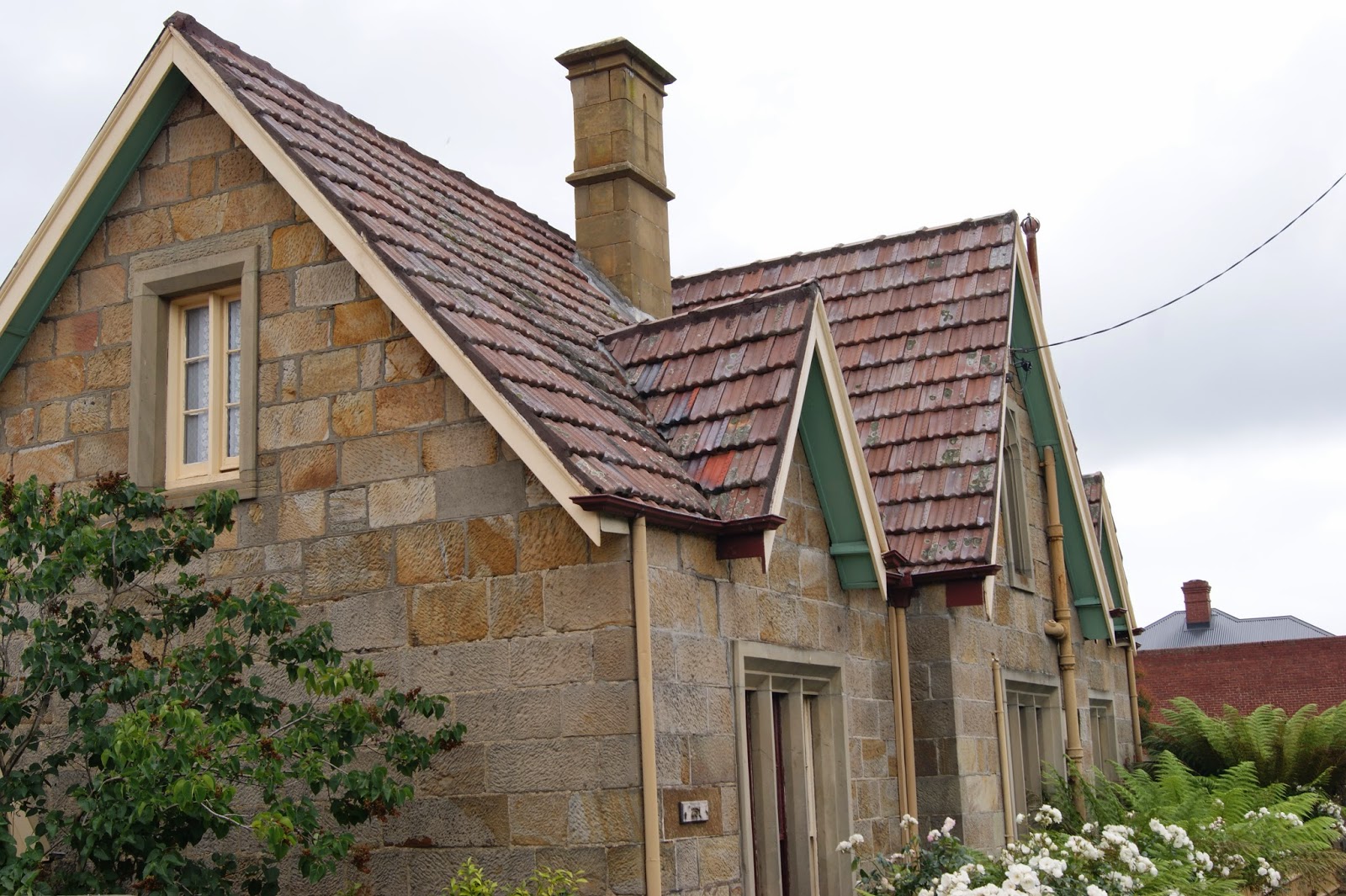This stately looking house has links, not with religious matters, but with prominent names from early Tasmanian banking. The first was the 2nd Managing Director of the Derwent Bank, the man who was responsible for the introduction of the overdraft system into Australian banking and one time owner of New Town Park, Charles Swanston. In 1846, he owned the land on which the home now stands and Swanston sold it that same year to J. Ludovic Burnett. The actual builder of the "The Hermitage" was Darcy Haggett, who bought the land from Burnett in October 1851.
Upon entering this magnificent, sandstone residence, visitors would have been impressed by its grand scale. the dark cedar front door leads into a high ceilinged wide hall, divided by a very impressive, yet simple Roman Arch and from which a number of tall, dark cedar doors lead off into other rooms. At the end of the hallway is a finely carved staircase that leads to four bedrooms. There are twelve rooms altogether in the house. The large kitchen and walk in pantry continue the grand scale feeling of the entrance. French doors lead into an enormous sun room, in the finest cedar and lit by more than 100 panes of glass. The floor is flagged with stones a metre long by half metre wide. The old servant summoning system has been fully restored to working order.
One of the longest tenancies at "The Hermitage" in its long life was the widow of another prominent banker, Mrs Minnie Radcliffe. Minnie was also the daughter of Thomas Giblin who was associated with the Bank of Van Diemens land for 54 years.Mrs Radcliffe and her 6 children lived in "The Hermitage" for a quarter of a century from 1909 following the sudden death of her husband, Hamilton Radcliffe, who was the manager of the Hobart Savings bank
Because of its proximity to the beginning of the Southern Outlet, there is no shortage of traffic noise. The owners of the house have been able to keep noise down in the house by the use of fences & hedges and combine this barrier with the natural noise reduction of its solid sandstone construction.
"The Hermitage" is another of the wonderful historic homes that populate the top end of Davey Street and make that whole precinct a wonderful reminder of the masterful art of the colonial builder and the wonderful imagination of the original owners and architects.It is great that so many of these magnificent homes continue to be appreciated by their owners of today.
Main Text & Information Source -
“Mansions, Cottages and All Saints” – Book by Audrey Holiday & Walter Eastman









